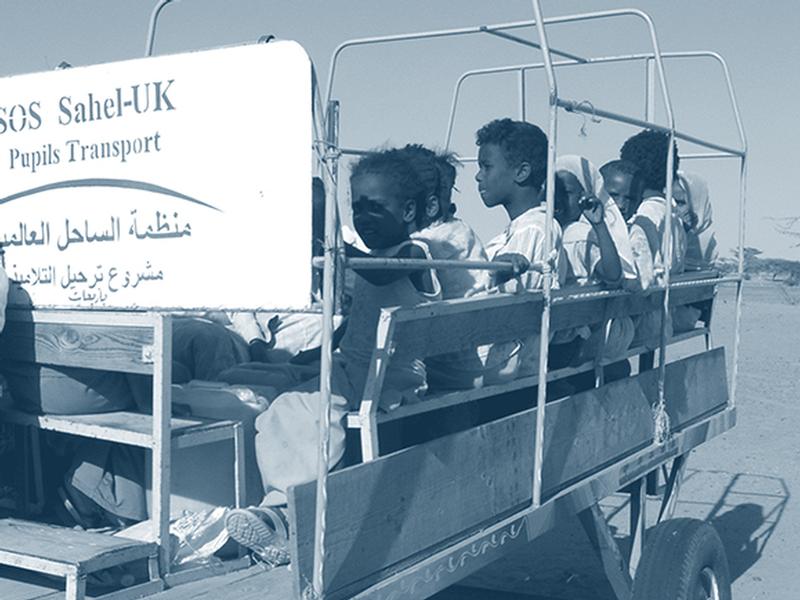Child marriage and education in Eastern Sudan
A lack of education is both a cause and effect of child marriage
How to cite this publication:
Liv Tønnessen and Samia al-Nagar (2018). Child marriage and education in Eastern Sudan. Bergen: Chr. Michelsen Institute (Sudan Brief 2018:01)
A new understanding that educating girls' does not constrain their marriage potential is emerging in eastern Sudan. Girls who continue their education and their families are role models who challenge the cultural boundaries of restrictive norms and traditions. This emerging trend can create momentum for other girls to continue their education and delay marriage. This brief examines the growing momentum for change as perceived by respondents in urban and rural communities in Algadaref, Red Sea State and Kassala.
A lack of education is both a cause and effect of child marriage
Poor access to education, coupled with low quality of education provided to girls, is considered a cause of child marriage There is also substantial evidence that marrying at a young age leads girls and young women to leave education. After marriage, young girls’ access to formal and non-formal education is severely limited because of restrictions on mobility, domestic burdens, and childbearing. Further, social norms view marriage and schooling as incompatible.
In the developing world, more than half of the girls from the poorest households were married in childhood. Poverty directly relates to a lack of education as there are restricted or limited school facilities, educational materials, and fewer opportunities for girls to attend school. Girls with no education are three times more likely to marry by 18 than those with secondary or higher education.
Early marriage and childbirth and a lack of access to continued educational opportunities limit married girls’ choices and life opportunities. By marriage, the young girl is more financially and socially dependent on a male breadwinner and is thus deprived of her agency to make choices about her body, sexuality and reproductive health and rights.
Education can help end child marriage
Education is one of the most important factors in delaying the age of marriage for girls. Girls who remain in education are more likely to marry later, have children later, enter work and contribute to the economy. In turn, continuing education not only positively affects the individual, but also has a positive impact on women’s representation in the workforce.
There is reason to believe that the decline in child marriage among girls under the age of 15 in a number of African countries is (at least partly) linked to more girls going to school. Girls in rural areas who do not continue with education, often because of their family economic situation, have few options other than to marry. Continuing education prevents girls from being socialized into submissive wives, and they learn other life skills including reading and mathematics.
However, the benefits of staying in education are often directly tied to wealth, and it is usually girls from the poorest families who are forced to leave education early.
Child marriage in Sudan
The knowledge of the benefits of education for women and girls is limited across Sudan. The importance of education is underestimated, and religious education is valued more than other forms of education. This is compounded by the high costs and inaccessibility of educational facilities and relates to poor government policies. However, our research shows that despite limited educational structures and a negative social attitude towards girls’ education, some families are supporting their girls in continuing their education. Education is
a factor challenging child marriage in Sudan.

Kassala State
Child marriage is widespread in Kassala (45%), and the state has the highest percentage of females who married before 15 years of age. The predominance of conservative ethnic groups in Kassala, makes the state a stronghold for child marriage. Despite international presence active in supporting education, conservative groups resist change. Many believe that girls should only receive religious education. The rationale is that by restricting education, a girls’ chastity and honour is protected. One educated woman stated in a focus group discussion: – “Continuing education is difficult, since the school uniform for girls is not acceptable to our families and going to school on public transport is not culturally approved in our communities.” In conservative Kassala, a woman’s place is in the home, not out at work.
Women are more likely to reflect on and recognize the changing opportunities for girls, whereas men in such a traditional society exhibit denial or hidden resistance
to change.
Most respondents in Kassala did not think that married girls should be able to continue their education. A staggering 96% of all respondents from one rural area said that married girls have no opportunity for education after they are married. This can be explained by the lack of educational facilities and schools in the area, highlighting the importance of accessibility, both physical and social, to education for girls.
We also found evidence that women are much more likely than men to believe that married girls should have opportunities to be in education. Women are more likely to reflect on and recognize the changing opportunities for girls, whereas men in such a traditional society exhibit denial or hidden resistance to change.
Red Sea State
In rural areas of Red Sea State, traditional views are continuing to force girls out of school, and the female dropout rate can reach 70% by sixth grade. The high dropout rate can be explained by child marriage, the high cost of education and mixed-gender schools, indicating that the school system itself discourages girls’ education.
However, more girls are obtaining education and women are increasingly entering the workforce in Red Sea State. Women are beginning to work outside the home, as teachers, doctors, and state government employees. Education statistics from 2016-2017 even show that there are more female than male teachers in Port Sudan. In addition, an increasing number of girls in urban areas are attending school, sometimes in larger numbers than boys.
Importantly, over 80% of female respondents in Red Sea State indicated that there are no problems with a woman or girl continuing their education. This suggests that those adopting new norms are not influenced negatively by those who cling to more traditional norms. However, stigmatization is still a major issue and girls who complete their education without marrying can be deemed ‘bayra’ (not demanded for marriage). Men often consider the reputation of their girls, and consequently their families, as very important. This was clearly reiterated during two group discussions with men who explained that educated girls would not make good wives:
“Marriage to educated girls is avoided by both young men and their families because educated girls are selective and resist marriage to cousins according to traditions. They prefer to marry educated men only. They may not accept the restrictions imposed by a husband. They demand a specific style of living. And they may not be as obedient to husbands and their families as [younger, uneducated] girls.”
Algadaref State
In Algadaref state, a quarter of all respondents said there were no opportunities for girls to continue education once they are married. This was primarily because according to law, the husband has a right to restrict his wife’s public activity, and she must obey. However, a 75% majority said that girls are able to continue their education after marriage. This is
a positive sign.
“There is a change in the attitude of men. Many now prefer educated women, as they expect that education helps them to raise children better than uneducated girls.”
In contrast to Kassala State, in Algadaref we found a strong support from men for girls to continue in education. This shows that male attitudes towards the potential for girls is changing and demonstrates a shift in male perceptions of what girls and women are capable of. Male interviewees stated that they knew of positive role models where educated women got married or married women received an education. A university-educated woman also declared,
“There is a change in the attitude of men. Many now prefer educated women, as they expect that education helps them to raise children better than uneducated girls.”
The number of girls continuing through secondary education in some regions is slowly increasing. The school girls who participated in our focus group discussions appeared aware of and ready to cross the borders of traditions. Some girls also noted that their parents expected them to finish high school education before they got married. This is a significant shift in attitudes towards the education of girls, and girls’ potential.
Attitudes are changing
Some girls are optimistic about the prospects for change. We strongly urge eastern states to make education a priority for all girls. This involves not only making schools physically accessible, but also socially accessible (for example, by requiring school uniforms that accord with community norms).
It is evident that a new understanding that educating girls’ does not constrain their marriage potential is emerging. Girls who continue their education and their families are role models who challenge the cultural boundaries of restrictive norms and traditions. Girls themselves have helped catalyze change by persisting in overcoming educational hurdles. This emerging trend can create momentum for other girls to continue their education and delay marriage.
Government education policies and role model families have contributed to this positive development. However, although the focus on girls’ education by government and civil society has been important, it has not been coupled with new national or subnational laws or policies on child marriage.
Child marriage is not the sole factor that makes girls drop out of education, but it is one of the main factors. This is an important consideration when designing interventions for ending child marriage. To be effective, any intervention needs to both deal with the practice of child marriage and advocate for the improvement of educational policies and curriculum in a way that motivates parents and communities to value and encourage the education of their girls.
A new norm needs to be established that puts a higher value on educated, empowered girls than on young, married girls.
We used qualitative methods to explore the perceptions of communities in the three states on child marriage, a topic of cultural sensitivity and evolving complexity. We used three primary data collection tools: structured interviews that used a survey, semi-structured interviews and focus groups. We targeted both males and females and individuals of varying social status and ages across different locations within each state.
Liv Tønnessen








